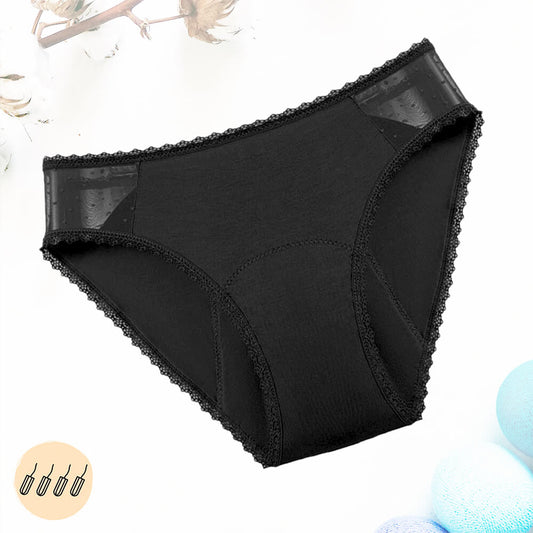
UTI is a bacterial infection that occurs in the urinary tract. Women are more likely to suffer from UTIs during menstruation because the blood can activate bacteria. According to some studies, 50-60% of women will develop at least one UTI during their lifetime, making it one of the most common infections. Symptoms of a UTI can include pain and burning sensation when urinating, increased urinary frequency, or fever.
Causes Of Urinary Infection During Menstruation
Menstruation is a particularly vulnerable time for women when it comes to UTIs. UTIs are common, especially in sexually active women of childbearing age. They are often caused by the entry of bacteria during sexual intercourse.
During menstruation, your body is more susceptible to various infections. The main reason you're more likely to get a UTI around this time is because estrogen levels drop. Estrogen contributes to the proliferation and activity of good vaginal bacteria. These bacteria help in particular to regulate the vaginal pH and to prevent the growth of bad bacteria. So, when estrogen levels are lower, the risk of UTI increases.

Symptoms Of Urinary Tract Infection During Menstruation
Symptoms of UTI during menstruation are often similar to those of a normal UTI:
- Pain and/or burning during urination (cystitis)
- Pelvic pain or cramps
- Frequent urge to urinate
- smelly urine
- Abnormal urine color
- Vaginal irritation
If you have these symptoms, it is important to consult a doctor so that he can prescribe an appropriate antibiotic treatment. Indeed, urinary tract infections are often mild but can, in some cases, be very serious and require hospitalization. If you frequently suffer from urinary tract infections, it is important to consult a doctor so that he can prescribe preventive treatment.
Can a UTI Affect Your Period?
UTI does not affect your period and contrary to popular belief, it does not cause late period. Of course, stress can impact your menstrual cycle. So if you're stressed about having a UTI, it can lead to a late or missed period.
Urinary Infection Treatment
Antibiotics are the most common and effective treatment for UTIs. Doctors may also prescribe medication to relieve pain and inflammation. It is important to treat a UTI, as it can lead to pain and discomfort. In addition, UTI can increase the risk of other infections, such as bacterial vaginosis.
How To Prevent Urinary Infection?

Although antibiotics usually clear up a UTI within a few days, preventing an infection is always better than treating it. To avoid developing a urinary tract infection and prevent bacteria from entering your body, there are a few simple methods to follow:
- Always wipe from front to back after urinating and having a bowel movement,
- Urinate immediately after intercourse to eliminate bacteria present in the urethra
- Avoid holding urination for long periods of time
- Drink plenty of water to dilute the urine and promote its evacuation
- Completely empty your bladder when urinating
-
Avoid douching which unbalances the vaginal flora
- Frequently renew your sanitary protection or urinary incontinence panties.
- Drinking cranberry juice also helps prevent urinary tract infections
Possible Complications Of Urinary Tract Infection During Menstruation
Women with a UTI are more likely to develop sepsis, inflammation of the kidneys (pyelonephritis), and kidney failure. Pregnant women or women who have heavy periods must also be very vigilant because the risks of developing a urinary tract infection increase. UTIs during menstruation can also lead to abdominal pain, nausea, vomiting, fever, and chills. In any case, consult a doctor immediately.




